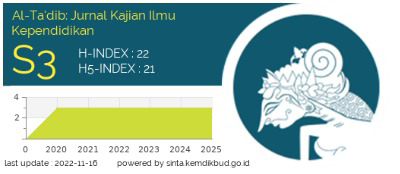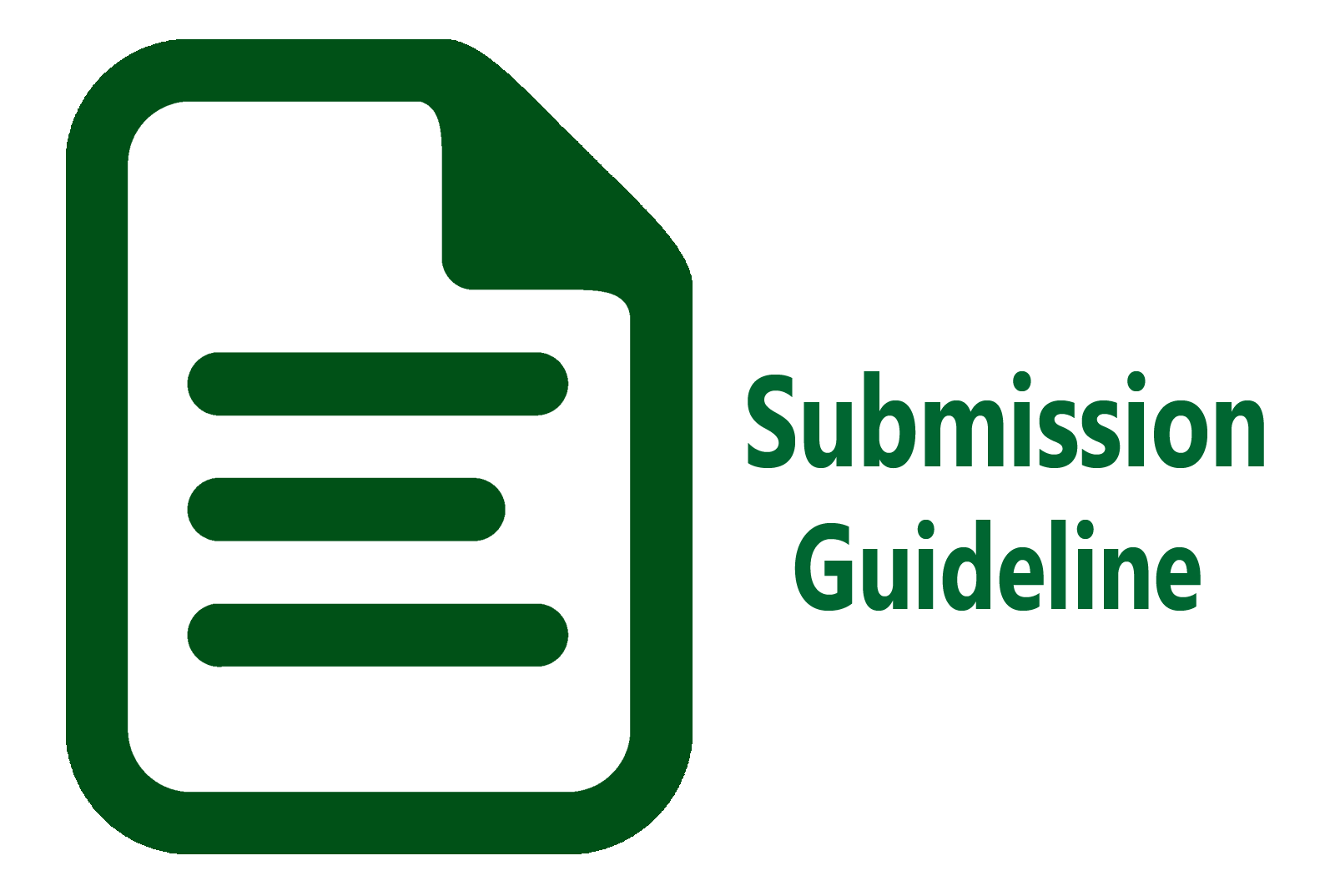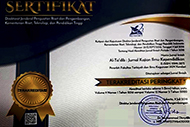Implementation of School Policy in Maintaining Environmental Care in Indonesia
Abstract
This qualitative research aims to educate and provide information to the public about the role of educational institutions in environmental care. This can be achieved by influencing people’s behavior to engage in environmental management through education in the school environment. Schools can implement programs or rules that teach students about environmental management and ensure that each student carries out and obeys the rules positively and responsibly. This research was conducted in SMAN 4 Kendari, Southeast Sulawesi, Indonesia. This school is one of the schools with an environmental vision that has been established based on government decisions. Data collection is done through observation, interviews, and documentation. The results of the study indicate that school policy in maintaining the ethical values of environmental care is done through strengthening school rules to ensure that each student is involved in managing the school environment, managing school facilities and services oriented towards environmental management, and strengthening and assisting students’ extracurricular programs in environmental management. With the approach undertaken by the school, it is expected to realize a healthy and comfortable environment and become a model in creating an eco-friendly environment school.
Keywords: Character; education; environment; management; eco-friendly
Full Text:
PDFReferences
Agus, E., & Ali, K. (2022). Environmental education for high school and vocational school of Muhammadiyah city of Medan based on Islam. Budapest International Research and Critics Institute (BIRCI-Journal), 5(1), 930–937.
Argandoña, A. (2004). On ethical, social and environmental management systems. Journal of Business Ethics, 51(1), 41–52. https://doi.org/10.1023/B:BUSI.0000032350.51151.0d
Bequette, J. W. (2007). Traditional arts knowledge, traditional ecological lore: The intersection of art education and environmental education. Studies in Art Education, 48(4), 360–374. https://doi.org/10.1080/00393541.2007.11650114
Blanchet-Cohen, N., & Reilly, R. C. (2013). Teachers’ perspectives on environmental education in multicultural contexts: Towards culturally-responsive environmental education. Teaching and Teacher Education, 36, 12–22. https://doi.org/10.1016/j.tate.2013.07.001
Bruyere, B. L. (2008). The effect of environmental education on the ecological literacy of first-year college students. Journal of Natural Resources & Life Sciences Education, 37, 20-26.
Castellanos, P. M. A., Queiruga-Dios, A., Encinas, A. H., & Acosta, L. C. (2020). Environmental education in environmental engineering: Analysis of the situation in Colombia and Latin America. Sustainability (Switzerland), 12(18), 1–14. https://doi.org/10.3390/su12187239
Dolenc Orbanić, N., & Kovač, N. (2021). Environmental awareness, attitudes, and behaviour of preservice preschool and primary school teachers. Journal of Baltic Science Education, 20(3), 373–388. https://doi.org/10.33225/jbse/21.20.373
Fua, J. La, Insawan, H., Umi, R., & Kendari, D. I. (2016). Islam dan lingkungan (Model pendidikan Islam dalam pembentukan perilaku peduli lingkungan di SMA Negeri 6 Kendari. Al-Ta'dib, 2(1), 131–150.
Fua, J. La, Nurlila, R. U., Gunawan, F., & Wekke, I. S. (2018). Islamic education on formation of environmental awareness in pondok pesantren Indonesia. IOP Conference Series: Earth and Environmental Science, 156(1). https://doi.org/10.1088/1755-1315/156/1/012035
Fua, J. La, Rahma, Nurlila, R. U., & Wekke, I. S. (2018). Strategy of Islamic education in developing character building of environmental students in Indonesia. IOP Conference Series: Earth and Environmental Science, 175(1). https://doi.org/10.1088/1755-1315/175/1/012149
Fua, J. La, & Suardi, I. W. (2014). Islam dan konservasi: Pendekatan dakwah dalam pelestarian lingkungan. Jurnal Pemikiran Islam, 17(2), 411–432.
Gould, R. K., Ardoin, N. M., Thomsen, J. M., & Wyman Roth, N. (2019). Exploring connections between environmental learning and behavior through four everyday-life case studies. Environmental Education Research, 25(3), 314–340. https://doi.org/10.1080/13504622.2018.1510903
Kadir, F., Ningsih, R., Fua, J. La., Raehang, R., Obaid, Y., & Nurlila, R. U. (2022). Management of an environmental education program in Konawe Regency. KnE Social Sciences, 2022, 158–168. https://doi.org/10.18502/kss.v7i8.10734
Kearins, K., & Springett, D. (2003). Educating for sustainability: Developing critical skills. Journal of Management Education, 27(2), 188–204. https://doi.org/10.1177/1052562903251411
Lestari, A. S., Fua, J. La, & Wahyuni, I. (2022). Building green schools through Adiwiyata school in Indonesia. Proceeding International Conference on Religion, Science and Education, 1, 51–58.
Littledyke, M. (2008). Science education for environmental awareness: approaches to integrating cognitive and affective domains. Environmental Education Research, 14(1), 1–17. https://doi.org/10.1080/13504620701843301
Painter-Morland, M., Sabet, E., Molthan-Hill, P., Goworek, H., & de Leeuw, S. (2016). Beyond the curriculum: Integrating sustainability into business schools. Journal of Business Ethics, 139(4), 737–754. https://doi.org/10.1007/s10551-015-2896-6
Rodríguez-Marín, F., Gutiérrez, M. P., López-Lozano, L., & Fernández, A. G. (2020). Early childhood preservice teachers’ view of socio-environmental problems and its relationship to the sustainable development goals. Sustainability (Switzerland), 12(17). https://doi.org/10.3390/su12177163
Sousa, E., Quintino, V., Palhas, J., Rodrigues, A. M., & Teixeira, J. (2016). Can environmental education actions change public attitudes? An example using the pond habitat and associated biodiversity. PLoS One, 11(5), 3–5. https://doi.org/10.1371/journal.pone.0154440
Tamura, M., & Uegaki, T. (2012). Development of an educational model for sustainability science: Challenges in the Mind-Skills-Knowledge education at Ibaraki University. Sustainability Science, 7(2), 253–265. https://doi.org/10.1007/s11625-011-0156-y
Wiek, A., Withycombe, L., & Redman, C. L. (2011). Key competencies in sustainability: A reference framework for academic program development. Sustainability Science, 6(2), 203–218. https://doi.org/10.1007/s11625-011-0132-6
Yadav, S. K., Banerjee, A., Jhariya, M. K., Meena, R. S., Raj, A., Khan, N., Kumar, S., & Sheoran, S. (2021). Environmental education for sustainable development. Natural Resources Conservation and Advances for Sustainability, 415–431. https://doi.org/10.1016/B978-0-12-822976-7.00010-7
DOI: http://dx.doi.org/10.31332/atdbwv15i2.5227
Refbacks
- There are currently no refbacks.
Copyright (c) 2022 Ratna Umi Nurlila, Jumarddin La Fua

This work is licensed under a Creative Commons Attribution-NonCommercial-ShareAlike 4.0 International License.
| Indexing: |










